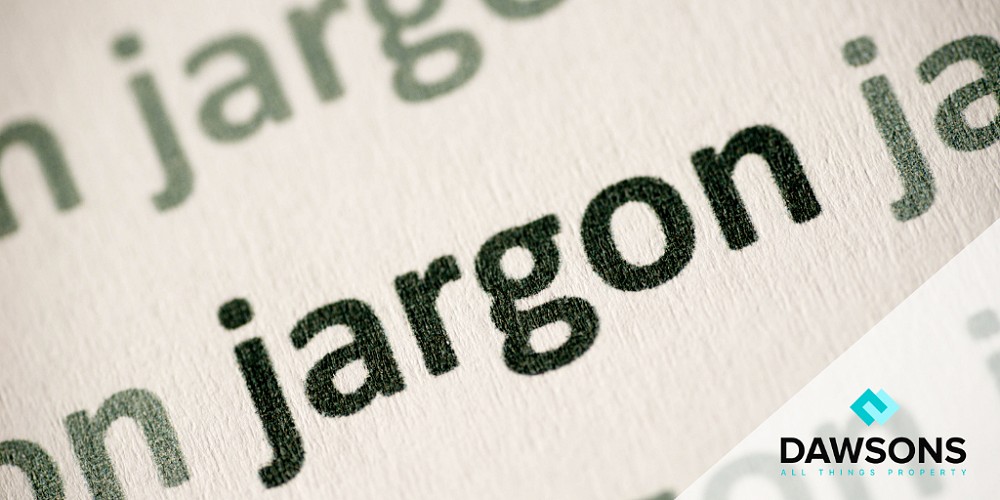17 pieces of property jargon - Explained!

Buying a property or applying for a mortgage is complicated even when you know what you’re talking about. Each part of buying a house has its own set of words and jargon that can feel overwhelming. You don’t need to take a dictionary with you when looking at a house though, let us be your guide!
Here are 17 pieces of common property jargon that we’ve busted so you don’t have to.
- Agreement in Principle - This is a document you get from a mortgage lender. It shows that you will be accepted for a mortgage for a particular amount of money, set over an agreed period of time. Having an agreement in principle, although not necessary, will show you are a ‘more serious’ buyer and may give you the edge if other people who don’t yet have an agreement in principle are also interested in the same property.
- Arrangement fee - An amount some lenders ask for to cover the admin time of arranging or rearranging a mortgage. Not all lenders charge this, but most do.
- Buy-to-let mortgage - A mortgage for clients who are looking to purchase a property with the intention of letting it out. Generally, anyone looking to take out a buy to let mortgage will go for interest-only mortgages. This is because you will only pay the interest. You will end up owing the lender the borrowed amount at the end of the mortgage term, which is usually covered by selling the property.
- Capital - The amount of money put into buying a property (a deposit for example)
- Chartered surveyor - The person registered with the RICS (Royal Institute of Chartered Surveyors) who surveys a property prior to purchase.
- Compulsory purchase order - A CPO allows local authorities to buy property, irrelevant of the ownership status. The property must meet certain conditions. For example, proof of how the property is a benefit to the general public along with how the owner will be compensated.
- Conversion - When you turn a property, or part of one, that has a certain use into something else, for example, a loft into a bedroom, a house into a shop, or vice versa.
- Conveyancing - All and any legal work that is carried out to transfer the legal ownership of a property to another, during a sale.
- Declaration of Trust - Ideal for parties buying a house together, who wouldn't otherwise have to legally separate. (e.g friends buying a house together or couples living together.) A declaration of trust is a legally binding agreement, detailing who gets what share if and when the property is sold.
- Disbursements - Fees such as stamp duty, that are paid on behalf of the buyer, by the solicitor.
- Easement - A right given to a 3rd party (other than owners of the property) for access to an owned property. For example, a driveway allowing access to two separate properties.
- EPC (Energy performance certificate) - A certificate to show how well something performs with regards to the use of energy and how efficient at using energy it is.
- Fixed-rate mortgage - A mortgage deal that has an agreed interest rate that will not change for a fixed period of time.
- Freehold - If your property is freehold you own the land as well as the property itself.
- Gazumping - When a seller agrees to an offer (in principle) but later accepts an offer that is higher in value from another buyer.
- House in Multiple Occupation (HMO) - When a house is occupied by three or more people and shares facilities such as bathrooms or kitchen spaces it is considered an HMO.
- Joint tenants / Joint tenancy - When multiple parties (two or more) have the same share in a property at the time of purchase. If one of the stakeholders passes away, the others share equally the stake in the property.
If you are looking at purchasing a property, don't get your heads in a spin! Get in touch with us. Members of the Dawsons Property team from any of our branches will be happy to help.
